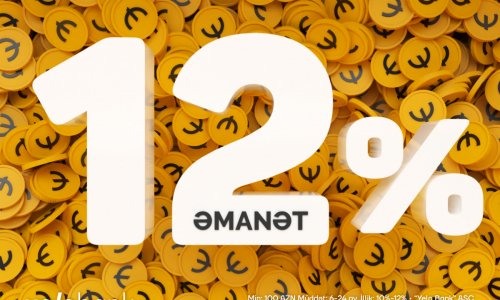Would you be prepared to manage all your finances through your smartphone?
This is the hope of many financial technology - fintech - start-ups aiming to transform our money management habits.
They think we now trust our mobile technology enough to carry out banking, money transfers, investments and loan applications without ever stepping into a bank branch or writing a cheque.
But are they right?
One start-up is going a step further, bringing many financial services together onto one app so that you have complete visibility of all your cash transactions in one place.
The app, called Bud, has been developed by 26-year-old Ed Maslaveckas. He says: "Many people simply don't have the time or expertise to track down the apps that can help them manage their money.
"So we've created an independent, universal banking app for my generation and anyone else who wants to make their money work harder for them."
As well as several mainstream banks, many other fintech firms have joined Bud, including global "send and spend" money app Revolut, peer-to-peer money transfer firm CurrencyFair, and crowd-investment platform Crowdcube.
The idea is that customers will be able to aggregate all their bank and credit card accounts into one place and switch money between them quickly and easily, as well as make payments to other people at the click of a button.
"The Bud app fits into a wider trend in the market as banks battle it out to make their online services as effortless as possible," says John Rakowski, director of technology strategy at AppDynamics.
"As consumers become increasingly used to intuitive tools such as Siri and Google Now... the idea of using multiple apps to do their banking is becoming outdated."
But Bud has its work cut out to raise awareness, given that its own research suggests nine out of 10 young people have never even heard of fintech.
Anna Laycock, lead strategist at the London-based Finance Innovation Lab, warns that while the market is exploding with innovative ideas, those that succeed will be the ones that people can easily understand and engage with.
"Companies need to be able to articulate how their products help people," she says. "Anything that empowers people with information they can understand and that can help their money management is a positive development."
'In your face'
The advent of smartphones and apps has given the global financial services industry - and tech-based start-ups in particular - the opportunity to change the tone and style traditionally associated with finance, believes Mr Maslaveckas.
"For years financial services were loud and in your face. Companies were always try to sell something to you that often wasn't to your benefit," he says.
"We're looking at things the other way round and offering people services that will benefit them."
In June, Bank of England governor Mark Carney, said: "Fintech will change the nature of money, shake the foundations of central banking and deliver nothing less than a democratic revolution for all who use financial services."
Smartphone-only banks, like Atom Bank and Mondo, are aimed at younger people comfortable running most of their lives on their phones.
At the moment Mondo only offers prepaid debit cards that can be topped up at cash machines and online, but it hopes to get a full banking licence later this year. This will enable it to offer standing order, direct debit and faster payments features.
Money management apps such as Loot and Moven aim to help consumers set a budget and keep track of their spending.
"You don't need to be a professional finance manager to be really good with money," reckons Mr Maslaveckas.
"You can get control of your finances simply by making the most of the fintech innovations that are already available to you on your phone."
High stakes
High claims, but is it a reality?
There has certainly been an upturn in the number of new app-based fintech firms attracting serious investment across the world in the last few months.
Payments providers, peer-to-peer lenders, "robo advisers", trading platforms , and foreign exchange companies have all been catching investors' attention.
, and foreign exchange companies have all been catching investors' attention.
 , and foreign exchange companies have all been catching investors' attention.
, and foreign exchange companies have all been catching investors' attention.For instance, global Bitcoin-based payment app Circle raised $60m (£45m) at the end of June in a cash-raising exercise led by Beijing-based venture capital company IDG Capital.
The company has launched a Chinese venture and plans major European expansion.
And the aforementioned banking app Mondo raised £8m, some £1m of which was crowdfunded in just 96 seconds earlier this year.
Globally, consultancy Accenture says fintech investment has risen from about $3.2bn in 2012 to $22.2bn in 2015, with the volume of deals nearly doubling over that period.
Innovation
Behind all this investment activity is the belief that technology is simplifying and democratising finance, putting control back into the hands of consumers.
Investment incubators, accelerators and innovation hubs are cropping up everywhere to encourage this flourishing sector.
For instance, Spanish banking giant Santander has set up a venture capital fund to back fintech start-ups working in areas that may improve its banking service.
"Any investments we make need to have potential commercial applications for Santander as a bank, and ultimately benefit our customers as the end users," explains Mariano Belinky, managing partner at Santander InnoVentures.
Two fintech projects already up and running as a result of the investment are Ripple and Kabbage.
The former allows banks to transfer international payments securely without the need for a middleman, while Kabbage provides quick online loans of up to £40,000 to small businesses.
But such convenience and flexibility doesn't necessarily come cheap.
A £40,000 Kabbage loan repayable over 10 months - the maximum period allowable - will cost you an additional £11,000. Hi-tech doesn't always mean low-cost.
Fight back
Banks are having to respond to the fintech challenge with innovations of their own, whether that is voice biometrics or mobile codes for authentication purposes.
Some are experimenting with personalised video to improve customer service, while others are expanding the way they communicate, using social media platforms such as WeChat, Facebook Messenger and Whatsapp.
Others are even moving beyond banking. For example, Poland's award-winning Idea Bank focuses on providing services to entrepreneurs, including a cloud-based space where people can work, meet and collaborate.
All this innovation should mean that, as Mr Carney said: "With time, fintech could mean a more open, more transparent, and more democratic global financial system."
(BBC)
www.ann.az
Follow us !











